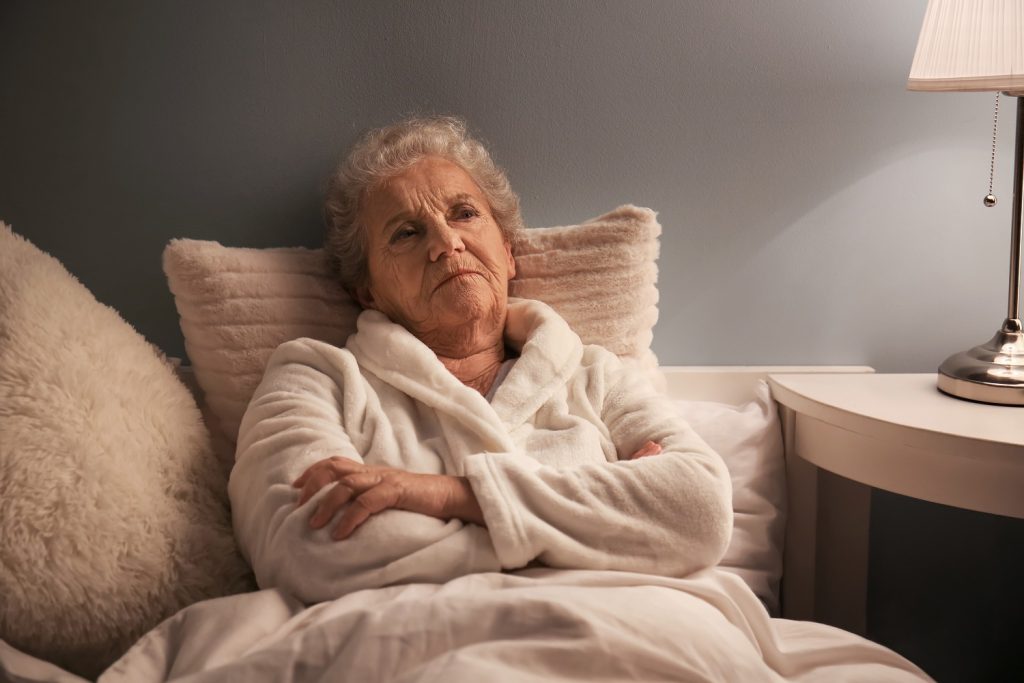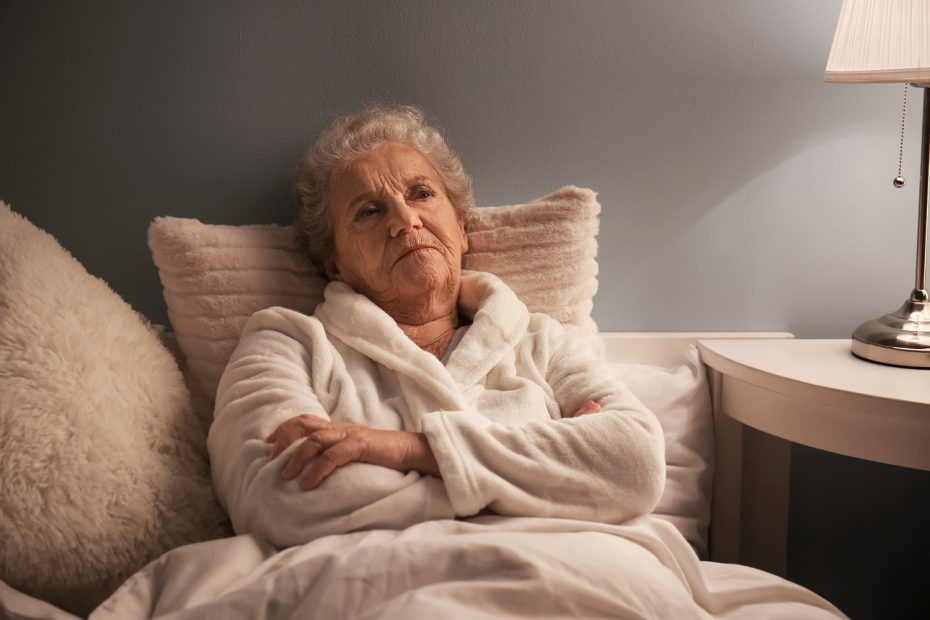
Incontinence issues are not uncommon in seniors living with dementia. Many reasons explain why incontinence issues arise. Seniors may be averse to wearing pull-up undergarments in response to their inability to control bladder or bowel movements. Here are ways to ensure seniors wear them.
What is incontinence?
Urinary incontinence may be described as unintentional urination. This type of incontinence can range from mild leaks to urination. Bowel incontinence occurs when fecal matter is unintentionally released. It ranges from sporadic leakage of stool to complete loss of bowel control.
Who is affected by incontinence issues?
Seniors living with the later stages of dementia most frequently experience bladder or bowel incontinence. In fact, approximately 60 to 70 percent of older adults with Alzheimer’s disease develop symptoms of incontinence. Yet, not every dementia patient will be incontinent.
Why does incontinence affect dementia patients?
Dementia is a condition that affects the brain. Due to various dementias, like Alzheimer’s disease, connections between the brain and bladder or bowel fail to function correctly. As a result, dementia patients may be unable to recognize when they have a full bladder.
Along with failing to recognize that they are having a bowel movement, dementia patients are more likely to experience issues with communicating to caregivers that they need to use the bathroom. Or, dementia patients with memory issues will have trouble remembering where the bathroom is located.
Medical conditions, like a urinary tract infection, enlarged prostate, or constipation, can cause incontinence. Diabetes or Parkinson’s disease are also known to create symptoms of incontinence. Elderly individuals with mobility issues may be unable to reach the bathroom in time.
As a result of experiencing incontinence symptoms, seniors will benefit from wearing disposable underwear. Out of shame or embarrassment, some older individuals may be resistant to wearing adult diapers. Approaching the situation in a tactful way will ease the embarrassment.
Step 1: Sensitively broach the topic of adult diapers.
Caregivers are advised to introduce adult diapers to elderly loved ones as pull-up underwear or briefs. Avoid using embarrassing terms, such as diapers or incontinence. Rather, describe instances of incontinence as spills or leaks. Suggest that accidents do happen and necessitate clean clothes.
When seniors are resistant to the idea of pull-up underwear, let them know that wearing them is helpful in case they are unable to reach the bathroom in time. The senior might be unaware of the difference between underwear and pull-up styles; in such cases, avoid pointing out the differences.
Step 2: Choose the right incontinence products.
Seniors who are comfortable wearing pull-up underwear or briefs are more likely to continue wearing them. Adult diapers are available in a range of sizes and absorbencies. Obtain free samples from companies to determine the size and absorbency levels that best meet the senior’s needs.
Step 3: Convince seniors of the benefits of pull-up briefs.
Reason with older adults who continue to refuse to wear adult diapers. Let them know that it is far more embarrassing to reek of urine than it is to wear absorptive undergarments. Work with them to find a low-profile product that will allow them to retain their dignity and autonomy.
Elderly individuals with incontinence issues may avoid social gatherings out of embarrassment. Remind the seniors that protective undergarments will allow them to continue to be socially active without fear of embarrassment. The right protection can also help to improve their appearance.
A senior who tries to cover up an incontinence issue should be informed of the offensive smells of urine in the home. Respectfully let the individual know that the problem is obvious. A gentle yet upfront approach can be enough to convince the senior to wear disposable undergarments.
Step 4: Seek a medical evaluation.
When comfortable pull-up briefs and attempts to convince the senior fail to produce compliance, caregivers should obtain a medical evaluation for the senior. Cognitive decline, which is an outcome of dementia, may prevent the senior from making sound decisions about incontinence products.
Seeing a doctor can result in an accurate medical diagnosis. When dementia is the culprit, the senior may be unable to make the right choices about self-care tasks, such as wearing absorptive undergarments and changing soiled clothing. Early diagnosis is important for proper care.
Older adults with incontinence issues may also be willing to listen when an experienced medical professional suggests undergarment protection. In the same vein, the elderly may cooperate when they are aware that an aging friend is going through the same issues.
Whether a senior is suffering from Alzheimer’s disease or another form of dementia, or is simply averse to wearing adult diapers, the abovementioned solutions can steer the individual in a healthier, less embarrassing direction. Caregivers will have success by showing respect and patience.

Help with incontinence is among the most common tasks handled by professional caregivers. Assisting Hands Home Care is a home care agency staffed with a team of expert caregivers who are trained to discreetly and compassionately support seniors living with incontinence.
If the senior in your life also suffers from Alzheimer’s disease, our quality memory care services will be invaluable. Along with helping seniors with incontinence issues, our caregivers support dementia patients who wander, become agitated, or experience bouts of forgetfulness.
Assisting Hands Home Care providers are dedicated to serving seniors through a variety of home care services. We are excellent companions and reduce social isolation. Our meal preparation and medication reminder services are offered in conjunction with personal hygiene assistance.
Our care options are flexible and meet the unique scheduling needs of families and their senior loved ones. We offer short-term respite care, 24-hour care and live-in care. Each care recipient undergoes an in-home evaluation, so that we can prepare a customized care plan.
Families with elderly loved ones living in Medinah, Glendale Heights, Itasca, Bensenville, Villa Park, Lombard, Elmhurst, Addison and surrounding DuPage County, have full faith in the dependable, comprehensive Alzheimer’s and dementia care services provided by Assisting Hands Home Care. Call us at (630) 526-6522 for a complimentary consultation to start reliable, non-medical home care.
















